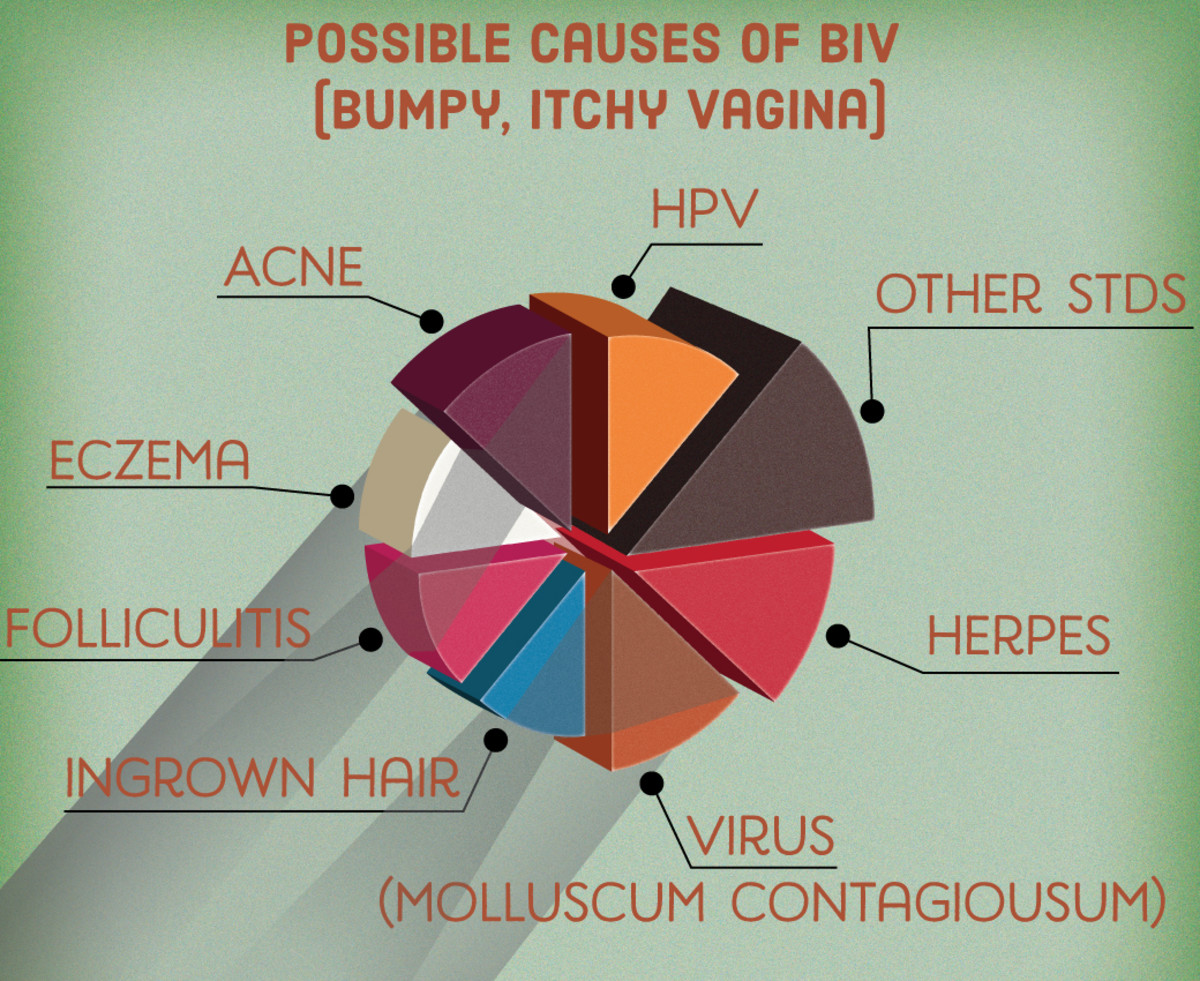Women's Health Concerns and Smoking- Exploring the Link
when it comes to women’s health concerns and smoking, you can never be too informed.
We all know that smoking is equally bad for both sexes but did you know that many of the unfortunate consequences of smoking can be even worse for women? And it does not matter how old a female is or how long she has been smoking. Smoking in women can lead to the obvious well known problems such as lung cancer and heart disease but its harmful reach goes even further than that.
So what do women have to worry about if they smoke? Think infertility. Think anxiety. Think osteoporosis. Think menstruation and /or menopausal problems. Think hormone issues. Think cervical cancer. Think pelvic inflammatory disease.
Every year in this country, smoking claims the lives of 173,940 women. In 2007, an estimated 17.4 percent of the female population in the United States (19.8 million women) were cigarette smokers.
Women’s health concerns and smoking are very real. This is not just a problem that exists in this country but on this continent and indeed, across the globe.And the best way of fighting is to be and stay informed.
Smoking and Menstruation and/or Premature Menopause:
If you begin to smoke as a teenager and continue to smoke into your 20s and 30s (and beyond) your chances of entering early menopause increase by as much as three times. Menopause symptoms could very easily show themselves in a smoker two to three years before they are experienced in an individual who does not smoke.
Menstrual problems are a common complaint amongst women who smoke. These health problems include such things as abnormal bleeding, a lack of periods (amenorrhea), vaginal discharge and vaginal infections. Both menstrual problems and early menopause noted in women smokers is related to either a lower level of estrogen than that found in non-smokers or a toxic effect that causes problems with the ovaries.
Smoking and Oral Contraceptives:
If you take the pill or use another form of hormonal contraceptive such as Norplant or Depo-Provera then you run a higher risk of suffering a heart attack, stroke or a blood clot than does a woman who does not smoke.
This risk becomes even greater as you get older. For example, women over the age of 35 who smoke should not take oral contraceptives because of the potential serious health risks involved.
Smoking and Infertility:
Women smokers tend to have a more difficult time conceiving than do women who do not smoke. They have approximately 72 percent of the fertility of those who do not smoke.
They are also 3.4 times more likely to have to try for a year or more before conceiving. This is due to the fact that ovulation is adversely affected in women smokers as the chemicals in tobacco make fertilization and implantation of the embryo much more difficult to accomplish.
Smoking and Pregnancy:
Women smokers tend to have a more difficult time conceiving than do women who do not smoke. They have approximately 72 percent of the fertility of those who do not smoke.
They are also 3.4 times more likely to have to try for a year or more before conceiving. This is due to the fact that ovulation is adversely affected in women smokers as the chemicals in tobacco make fertilization and implantation of the embryo much more difficult to accomplish.
Smoking and Cervical Cancer:
Annual pap tests to screen for cervical cancer and ovarian cancer are a must for every woman- whether she smokes or not. Early detection is a key factor to treating the disease and having a successful survival rate.
However, the importance for screening s even greater for females who smoke cigarettes.
Research studies have shown that smoking may play a role in the development of cervical cancer. One study in particular showed a very strong association between the two. The study found that women smokers had an 80 percent higher risk of developing this form of cancer than did their non-smoking counterparts.
As an aside, vulva cancer, which is another form of gynecological cancer, is 40 percent more likely to develop in smokers than in non-smokers.
Smoking and Hormones:
Smoking can wreak havoc with hormones, especially for post menopausal women. If you are post menopausal and you are taking estrogen replacement therapy then it will provide a certain level of protection against such health conditions as osteoporosis and heart disease.
Unfortunately these good points of the hormone therapy are cancelled out to a certain extent due to the increased health risks that go along with taking hormones while you continue the smoking habit. Taking elevated levels of estrogen can leave you open to a very high risk of having either a heart attack or a stroke.
Smoking and Osteoporosis:
Osteoporosis is a disease that anyone can develop, however it is more likely to occur in smokers. This is because smoking can weaken bones and cause a large extent of bone loss.
Women who smoke a pack a day or more can experience a bone density loss that is anywhere from five percent to 10 percent greater than that of women who do not indulge in the smoking habit. This is before they enter menopause.
Smoking and Pelvic Inflammatory Disease (PID):
Pelvic inflammatory disease is a disease that more commonly occurs in female smokers than in non-smokers (33 percent to be exact). This disease can cause a tremendous amount of pain and discomfort and would necessitate medical attention immediately.
PID is believed to be a factor in pelvic adhesions, ectopic pregnancies and other kinds of problems related to fertility.
Final Word:
If you're a woman and smoke then it is likely that a number of the health issues I've identified you're already familiar with, but possibly some you're not. Again, being and staying informed as new research and study results become available is key for women.
Our bodies are complicated and under constant attack regardless if you smoke or not. Most smokers who quit do it primarily for health reasons. For women the argument to quit is overwhelming and there are some resources at the end to provide more information if you decide this is your next step.
For women willing to take the chance and continue smoking then make sure you have regular physical exams and speak to your doctor about including appropriate supplements as part of your wellness strategy.
Resources About Smoking and Women's Health Related Topics:
- Youth Tobacco Prevention- Beneficial Tips and Suggestions
Youth tobacco prevention is something that everyone should be worried about, whether you are a parent, a teacher or simply a concerned citizen. - Stop Smoking Hypnosis in Massachusetts Services
Information about hypnosis and services offered to help smokers who wish to stop and live in the metro-west Boston area in Massachusetts. - PACE Exercise for Weight Loss Program
Discover the PACE exercise weight loss and 12-minute fitness revolution here - PACE trains your body to burn fat while you rest - it changes everything. - The Surest Natural Ways to Stop Smoking
The ideal way to stop smoking naturally is by either going cold turkey or using hypnosis to help you combat the addiction. - Help your body recover after quitting smoking
So you've finally quit smoking. Congratulations! Now you want to try to reverse some of the damage that has been done to your body. While not all the damage can be reversed there are ways you can certainly... - Life Following a Stop Smoking with Hypnosis Plan
You have just completed a stop smoking with hypnosis plan and you have done well for yourself. But what next? How to do you cope with life after hypnosis? - Hypnosis Therapy Services and Self-Hypnosis Products
Free At Last Hypnosis provides private and group therapy services for Stop Smoking and Weight Loss programs for the Metrowest Boston Massachusetts area, and also offers self-hypnosis home-study products. - Reducing stress
Many of us live a stressful lifestyle without really being aware of it. Modern life exposes us to many pressures, producing a stress response from our system, including the release...








